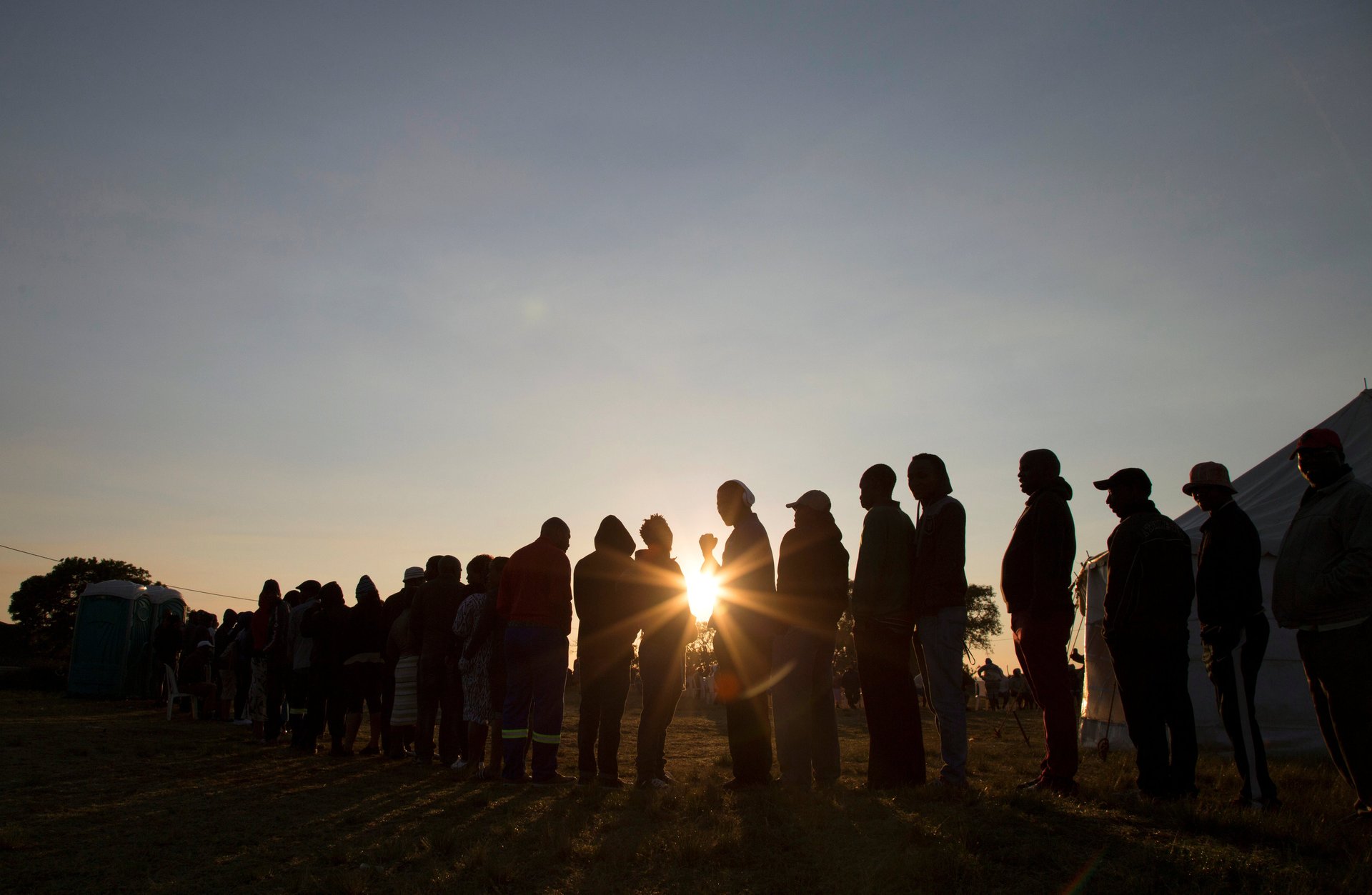South Africa’s latest elections show Mandela’s legacy can’t protect the ANC from its own incompetence anymore
This week, South Africans handed the African National Congress its worst electoral defeat since the ruling party ended apartheid under Nelson Mandela’s leadership in 1994. It was the country’s most competitive local elections, as voters decided who would govern the country’s more than 250 municipalities and districts, which oversee basic services such as water, electricity and sanitation.


This week, South Africans handed the African National Congress its worst electoral defeat since the ruling party ended apartheid under Nelson Mandela’s leadership in 1994. It was the country’s most competitive local elections, as voters decided who would govern the country’s more than 250 municipalities and districts, which oversee basic services such as water, electricity and sanitation.
Over the last two decades, the ANC has managed to win national and local elections with an outright majority of over 60 percent, although its numbers have steadily dropped. This week, the party retained a 54% majority in the elections, based on preliminary results. But in a major blow, it lost key cities such as the administrative capital Tshwane (Pretoria) and Port Elizabeth. It failed to make any ground in Cape Town, which it has not governed at a local level since 2006, and looks to lose Johannesburg, although that race was too close to call at the time of writing.
While it remains the largest party in South Africa, the ANC’s base has been whittled away by the liberal opposition party, the Democratic Alliance, which increased its lead to 26.5 percent compared to only 16 percent ten years ago. The young socialist Economic Freedom Fighters party, led by the boisterous former ANC Youth League leader Julius Malema, also captured eight percent of the total vote.
In some respects, the results weren’t totally surprising. A pre-election survey reported 57 percent of the respondents saying that the party had lost its “moral compass.” Reports of infighting within the ANC prompted many leaders to opt out of campaigning. Former president Thabo Mbeki said he was away on travel. Former South African vice-president Kgalema Motlanthe last week said the political party he once represented had lost its “historical perspective,” and its leadership was failing. “It’s almost as though the country is on autopilot. There’s no leadership being provided,” Motlanthe said.
Protests over basic service delivery have become commonplace in the country. Unemployment and inequality are rampant, and the country’s GDP is expected to grow only 0.8 percent in the next year. Proposed increases in university tuition fees last year led students to protest for transformation in higher education.
“We can definitely say people voted on conviction,” says Lukhona Mnguni, a doctoral candidate in social sciences at the University of KwaZulu-Natal in South Africa. The ANC was shown that in South Africa’s maturing democracy, it is the people who “hold the keys to power at the end of the day,” Mnguni says. “If anything, this election and its outcome show us that the citizens are really talking to the politicians.”
The elections were also an indictment of the country’s president, Jacob Zuma, who was first elected in 2009. The controversial president has faced mounting criticism in recent months, with many calling for his resignation before the end of his term in 2019. His government has faced allegations of corruption. In Dec. 2015, he removed and appointed three finance ministers in under a week. Earlier this year, the country’s highest court ordered him to repay the $16 million in state funds he used to upgrade his private residence in Nkandla, KwaZulu-Natal. Disillusionment with Zuma’s leadership was most apparent in Nkandla, where the ANC lost to the Inkatha Freedom Party.
Zuma’s appeal to voters to view the DA as an oppressor’s party, and its black leader, Mmusi Maimane, as being in cahoots with the white establishment, also appears to have backfired. “Clearly, the people have spoken. It’s a significant swing against the ANC,” political analyst Richard Calland told local radio station 702. “The electorate didn’t respond well to the ANC’s negative campaign.”
More than anything, the 2016 municipal elections point towards a realignment of political realities in South Africa. Young voters born after the end of apartheid in 1994 are now voting age. EFF leader Malema and DA leader Mmusi Maimane are both in their 30s, and their messages have resonated with the young, urban electorate. The DA is trying to portray itself as a party that can work for all South Africans, while the radical EFF appeals to discontented young voters with promises to tackle corruption, increase minimum wage and redistribute white-owned farm land.
For many South Africans, voting for the party that affected momentous change in the past doesn’t guarantee that they will vote against their own interests in the future. As one voter told The New York Times, “Mandela is dead. We understand he’s a hero. But it’s useless for me to talk of Mandela. I don’t eat Mandela.”
The real question facing the opposition parties is whether they will be able to form strong enough coalitions to truly challenge the ANC’s rule from the ground up. “Political parties that define themselves very differently ideologically now may be forced by the electorate to work together,” Mnguni says. “And there’s an underlying meaning there, which seeks to say, ‘In all our differences, at the end of the day, we have a country to build.’”